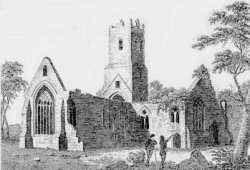
Merton Priory Press
an independent publisher
of academic and mid-market history
including new titles and reprints
9 OWEN FALLS AVENUE :: CHESTERFIELD :: S41 0FR :: Tel: +44(0)1246 554026
Email: mertonpriory@btinternet.com
3: INDUSTRIAL HISTORY
| 1: LOCAL HISTORY | 2: WELSH HISTORY |
| 4: TRANSPORT HISTORY | 5: GENERAL AND BIOGRAPHY |
CLICK ON A TITLE FOR FULL DESCRIPTION, DETAILS AND PRICE
Bath Stone
by John Perkins, A.T Brooks and A.E Pearce
A detailed and well illustrated account of underground and surface operations at the quarry, including the tramways which served the mines.
British Blast Furnaces Statistics 1790-1980
by Philip Riden & John G. Owen
All available pig iron output tables from 1790 onwards, with chapters giving the information for virtually every ironworks in use since 1790, together with owners' names and a National Grid reference for the site. More than 600 works are included, and about 2,500 ironmasters and companies.
The Diary of Charles Wood
by Joseph Gross
From 1766–7, while supervising the construction of Cyfarthfa ironworks, Wood kept a daily record of progress. His diary is a neglected source for iron industry history and throws a wealth of light on life in Merthyr Tydfil in the mid 18th century, just as the parish was beginning to be transformed by the building of new ironworks.
The Derbyshire Lead Industry in the Sixteenth Century
by David Kiernan
The rise of a new class of urban lead merchants as the industry emerged from late medieval decline into a phase of rapid growth, thanks to the introduction of new smelting techniques.
An History of By-Product Coking Plants
by David G. Edwards
By-product coke manufacture was a significant part of the British economy for most of the twentieth century, and still has a role today. At its height in the 1950s, the industry converted more than 30 million tonnes of coal a year into coke with by-products of coal gas, tar and, benzole that have found uses in many fields.
A History of the British Lubricants Industry
by Timothy J. Hill
The first ever academic history of a vital but little regarded branch of British manufacturing industry. Without lubricants not a single piece of machinery would move, and yet until now no-one has traced the history of lubricants, which remain an important downstream branch of the oil industry both in Britain and worldwide.
Historic Melingriffith
by Edgar L. Chapell
A new edition of a pioneer monograph (first published in 1940) on Melingriffith Tinplate Works, one of the earliest in Britain and its associated blast furnaces and forge at Pentyrch. With a new introduction by Philip Riden.
The Industrial Deve1opment of South Wales
by A.H John
First published in 1950, this classic regional study remains the best introduction to the modern economic history of South Wales. This new edition includes a biographical memoir of the author and bibliography by the late Walter Minchinton.
John Bedford and the Ironworks at Cefn Cribwr
by Philip Riden
John Bedford operated forges in Monmouthshire in the 1760s and later attempted to establish ironworks at Cefn Cribwr near Bridgend. As well as discussing Bedford's career, including an analysis of his extensive papers, the book also traces the later history of Cefn Cribwr Ironworks and describes surviving remains.
The Knight Family
by Laurence Ince
The first published study of one of the more important dynasties of charcoal ironmasters of the 18th century, whose centre of operations was the Stour Valley in Worcestershire but whose trading contacts extended from Argyll to Hampshire.
Rhondda Coal, Cardiff Gold
by Richard Watson
The rise and decline of the Insoles, from their origins in Worcester, their acquisition of collieries in the Rhondda and estates in Llandaff and Somerset and the loss of the family fortunes after the First World War.
South Wales Iron Industry 1750-1885
by Laurence Ince
A general account of the heyday of the industry, with chapters on each of the ironmaking valleys between the anthracite district of north-west Glamorgan and the Eastern Valley of Monmouthshire.
Wilkinson Studies
by Richard Baker
Two volumes of illustrated essays on the life of John Wilkinson (1728–1808), the ironmaster and innovator.
